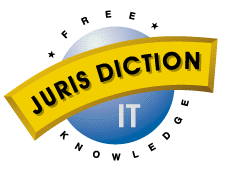 European Community
Database Directive
European Community
Database Directive
copyright 1997 Donald M. Cameron , Aird & Berlis
Contents
The Directive
The European Community's Directive on the legal protection of databases( European Data Directive 96/9/EC of the European Parliament and of the Council of March 11, 1996.), which creates new rights protecting commercial databases, became final on February 26, 1996. It is expected to be implemented by legislation in EC member states by early 1998.
The directive sets out two new rights for the makers of databases:
the right to prevent unauthorized acts of extraction from a database and;
the right to prevent unauthorized acts of re-utilization of the contents of a database.
The rights would be available whenever the database maker has made a substantial investment in obtaining, verifying or presenting the contents of database.
right of extraction
The right to prevent unauthorized extraction of data protects the effort of an author who creates a database which lacks sufficient originality for copyright protection. Persons with access to the database are prevented from extracting and re-utilizing the contents of the database for commercial purposes.
The right is reminiscent of the "sweat of the brow" threshold common to U.S. copyright law prior to the Feist decision.
background
The European Community felt that there was a need for increased protection of databases. Copyright protects the "form" taken by data but does not protect the data itself. Where there is insufficient "form" (for example in a short work), there is no copyright protection. Where there is insufficient originality, the work is not protected by copyright.
The Commission produced a draft database Directive on April 15, 1992 which proposed new rights dealing with databases. The draft was revised on October 4, 1993.
term
The rights would run for a period of 15 years; substantial changes to the content of the database will result in the database being considered new with a new term of protection.
reciprocity a prerequisite
Like the American Semiconductor Chip Protection Act, protection under the European Directive is to be available only to nationals of members of the EC. Other countries will obtain such protection only if they offer comparable protection to databases of European nationals and if a bilateral agreement is reached.
compulsory licensing
Compulsory licences are contemplated where the data found in the database cannot be independently created, collected or obtained form other sources. Under such circumstances, the data must be made available on "Fair and non-discriminatory terms". For databases produced by "public bodies", one can extract and re-use insubstantial parts of the database for commercial purposes.
Comments
The European directive adds a new wrinkle to protection of databases. European databases would be treated differently than foreig databases and would be granted greater protection in Europe. Jurisdictional questions arise concerning the unauthorized extraction or re-utilization of European data by a foreign user on the Internet. Perhaps the question will resolve itself as other countries move to adopt similar legislation.
In the area of software maintenance (such as repairing errors), the Directive allows modifications to be made which are "necessary for the use of the program". The EC Directive goes part way to solve the commercial problem raised by the GEAC v. C.E.S. case.
Should other countries enact a right to prevent unauthorized extraction (See the U.S. Initiatives)? If we do not, will the database industries move to Europe where such protection exists? Will the right to prevent unauthorized extraction prompt "me-too" legislation such as the foreign equivalents to the Semiconductor Chip Protection Act?
Other Resources
Cook, Trevor M.; "The Current Status of the EC Database Directive," (August 1995) Copyright World 27.
Return to:
Cameron's IT Law : Home Page ; Index
Cameron's Canadian Patent & Trade Secrets Law : Home Page ; Index